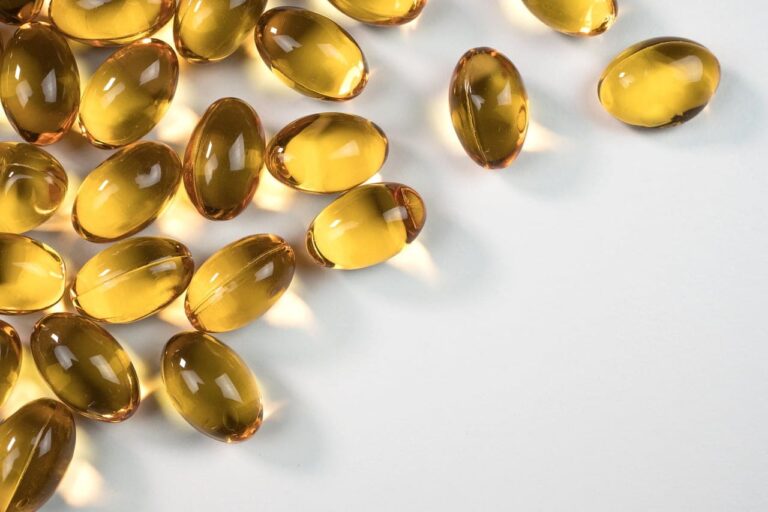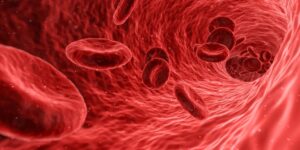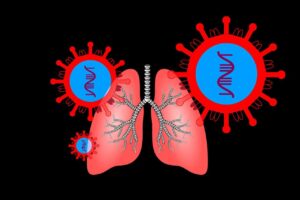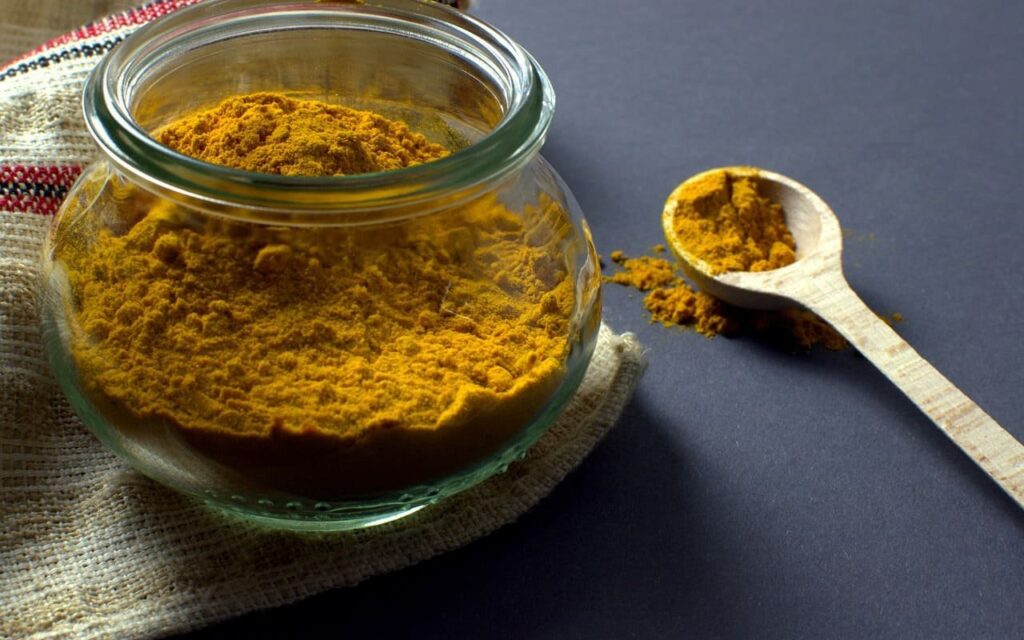
Table of Contents
ToggleHealth Benefits of Vitamin E
Vitamin E is extremely beneficial for the body and serves various purposes. This blog contains “7 Astounding Benefits of Vitamin E” and it will also discuss vitamin E dosage, deficiency, toxicity and much more.
Excited? Let’s get started! 36 High Vitamin E Foods: Vitamin E Rich Fruits, Nuts, Oil And More
Brief About Vitamin E
Vitamin E, also known as ‘Tocopherol’ which is a fat-soluble vitamin and it encompasses 8 forms: alpha-tocopherol, beta-tocopherol, gamma-tocopherol, delta-tocopherol, alpha-tocotrienol, beta-tocotrienol, gamma-tocotrienol and delta-tocotrienol. However, only alpha-tocopherol is found in abundance and maintained in human plasma.
The main function of vitamin E is to protect cellular components from oxidative stress by scavenging free radicals. 7 Health Benefits of Vitamin A (Evidence-Based)
7 Health Benefits of Vitamin E

1) Benefits of Vitamin E for Skin
Vitamin E has been used for more than 50 years in dermatology due to its extremely high antioxidant and anti-inflammatory properties and it serves as an essential ingredient in many cosmetic products.
A research published in the Indian Dermatology Online Journal reported that vitamin E protects the skin from UV-radiation. Moreover, experimental studies indicated that tocopherol has photoprotective and antitumorigenic properties. 10 Mind-Blowing Benefits of Vitamin C
2) Benefits of Vitamin E for Hair
Have you heard of a daily hack, mixing a vitamin E capsule in the hair oil? This is because vitamin E has the ability to promote hair growth and research has provided explicit evidence for this.
A clinical trial analyzed 21 volunteers suffering from hair loss for 4 and 8 month interval, who orally received 100 mg of mixed tocopherol (Vitamin E) daily, while other 17 hair loss volunteers received a placebo capsule. And the findings were,
The number of hairs in a pre-determined scalp area increased significantly in vitamin E group. And at the end of 8th month supplementation, the hair growth was 34.5% higher as compared to the placebo group.
3) Benefits of Vitamin E for Brain
Vitamin E strongly influences the cognitive ability of an individual and has a therapeutic effect on various neurodegenerative disorders. A research published in the journal, Healthcare found evidence that vitamin E supplementation slowed down the progression of MCI (Mild Cognitive Impairment).
Epidemiological studies have also found that vitamin E intake decreases the rate of cognitive impairment and has a therapeutic effect on cognitive delay, memory impairment and aids learning and memory.
Another study in Nutrients journal suggested that vitamin E is a nutritional compound which promotes healthy brain aging and delays Alzheimer’s related functional decline. Top 5 Incredible Benefits of Ashwagandha
4) Strengthens Immune System
Vitamin E is one of the most effective vitamins to modulate immune function because it curbs oxidative stress and enormously high in antioxidants. A research published in IUBMB Life Journal (International Union of Biochemistry and Molecular Biology) showed that vitamin E has a direct as well as indirect effect on the immune cells.
It provided strong evidence about the immunoregulatory potential of vitamin E. Another evidence indicated by the journal, Nutrients which showed tocopherol improved immune responses in animal and human models.
The majority of the studies, evidence and clinical trials point to 3 mechanisms through which vitamin E strengthens the immune system:
- Modulation of Th1/Th2 balance.
- Reduction of PGE2 production.
- Improved immune synapse formation in T cells and initiation of T cell activation signals.
5) Ensures Lung Health
Studies have shown that vitamin E supplementation helps to reduce lung diseases significantly. A study conducted by WHS (Women’s Health Study) analyzed 38,597 women with chronic lung disease aged 45 years or more. They were given tocopherol (600 IU every other day) and aspirin (100 mg every other day).
During 10 years of follow-up, 760 Ist occurrences were found in vitamin E group whereas 846 were in placebo. So, there was a 10% reduction in the risk of lung diseases in the group of vitamin E as compared to the placebo.
However, more research is required as still the efficacy of vitamin E in this regard is not established. How to improve Lung Health?
6) Fights NAFLD and NASH

Vitamin E is used extensively to treat NAFLD (Nonalcoholic Fatty Liver Disease) and NASH (Nonalcoholic Steatohepatitis) which is a liver disease which happens due to the accumulation of excessive fat in the liver. Many clinical trials on NASH/NAFLD patients have yielded promising results due to tocopherol supplementation:
- A clinical trial conducted by TONIC (Treatment of NAFLD in Children) and PIVENS which included 247 non-diabetic and non-cirrhotic adults with NASH received vitamin E (800 IU/Day), pioglitazone (30 mg/day) or placebo for 96 weeks. And it showed that vitamin E improved NASH as compared to the other 2. It reduced ALT, steatosis, inflammation and hepatocellular ballooning.
- In another trial, 12 NASH and 10 NAFLD were given dietary instruction with vitamin E (300 mg/day) for a year and it also showed the same results as stated above.
7) Disease Prevention

Vitamin E is a free-radical scavenger and possesses antioxidants and anti-inflammatory properties. Moreover, it helps in reducing oxidative stress, protects cell membrane and regulates platelet aggregation.
It helps to prevent various diseases like CVDs (Cardiovascular Diseases), eye issues, different types of cancers, HIV, AIDS, etc.
Vitamin E Deficiency
The vitamin E deficiency is extremely rare. Some of the symptoms of vitamin E deficiency are:
- Coordination Difficulties
- Muscle Weakness
- Numbness or Tingling Sensation
- Loss of Body Movement
- Vision Problems
- Weakened Immunity
How much vitamin E per day?

The Recommended Daily Allowance (RDA) for vitamin E is 15 mg/day (22 IU), which is safe and sufficient in order to stay healthy and avail all the health benefits of vitamin E.
How much vitamin E is too much?
The Upper Limit (UL) of vitamin E consumption is 1,000 mg/day. Vitamin E up to this limit is unlikely to cause any health complications. However, one should not go close to the upper limit or any high dosage in order to prevent vitamin E toxicity.
Vitamin E Side Effects (Vitamin E Toxicity)

There are no potential side effects of vitamin E and it only occurs due to high dosages of tocopherol, which is known as ‘Vitamin E Toxicity’. Some of the side effects due to the toxicity are:
- Nausea
- Bleeding
- Diarrhea
- Fatigue
- Hemorrhagic Stroke
Takeaway
Vitamin E is an important micronutrient which plays a significant role in keeping the skin, hair and immunity healthy which is clearly evident due to the above mentioned “7 Astounding Benefits of Vitamin E”. Having adequate vitamin E per day ensures a healthy body and proper functioning. Top 26 High Vitamin C Foods





















